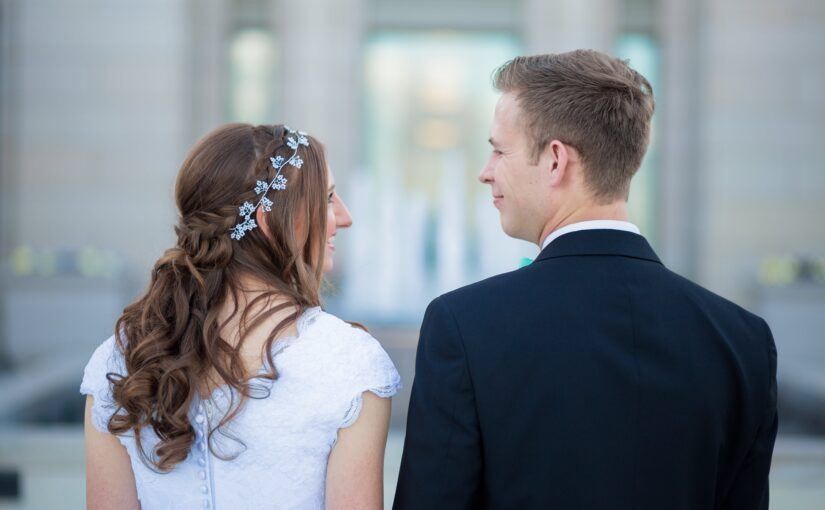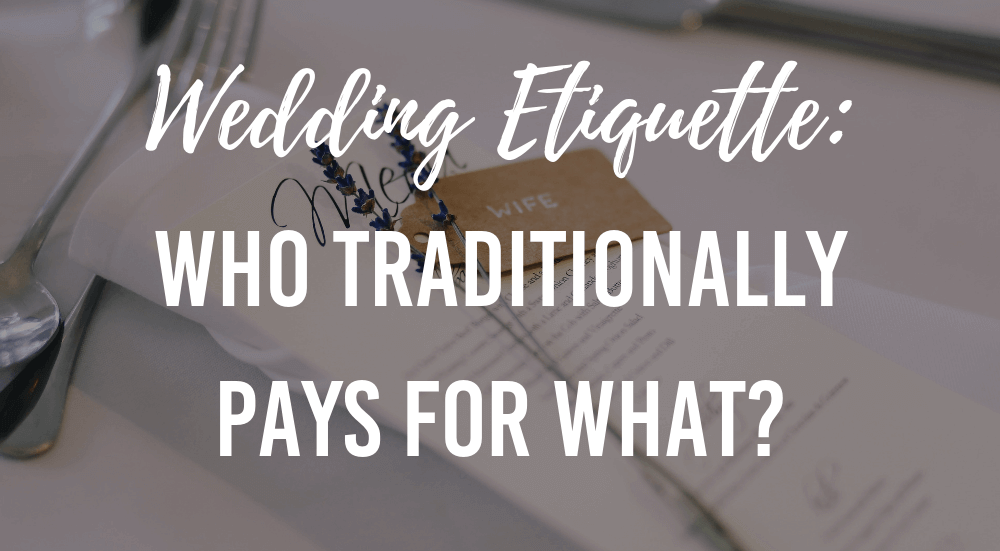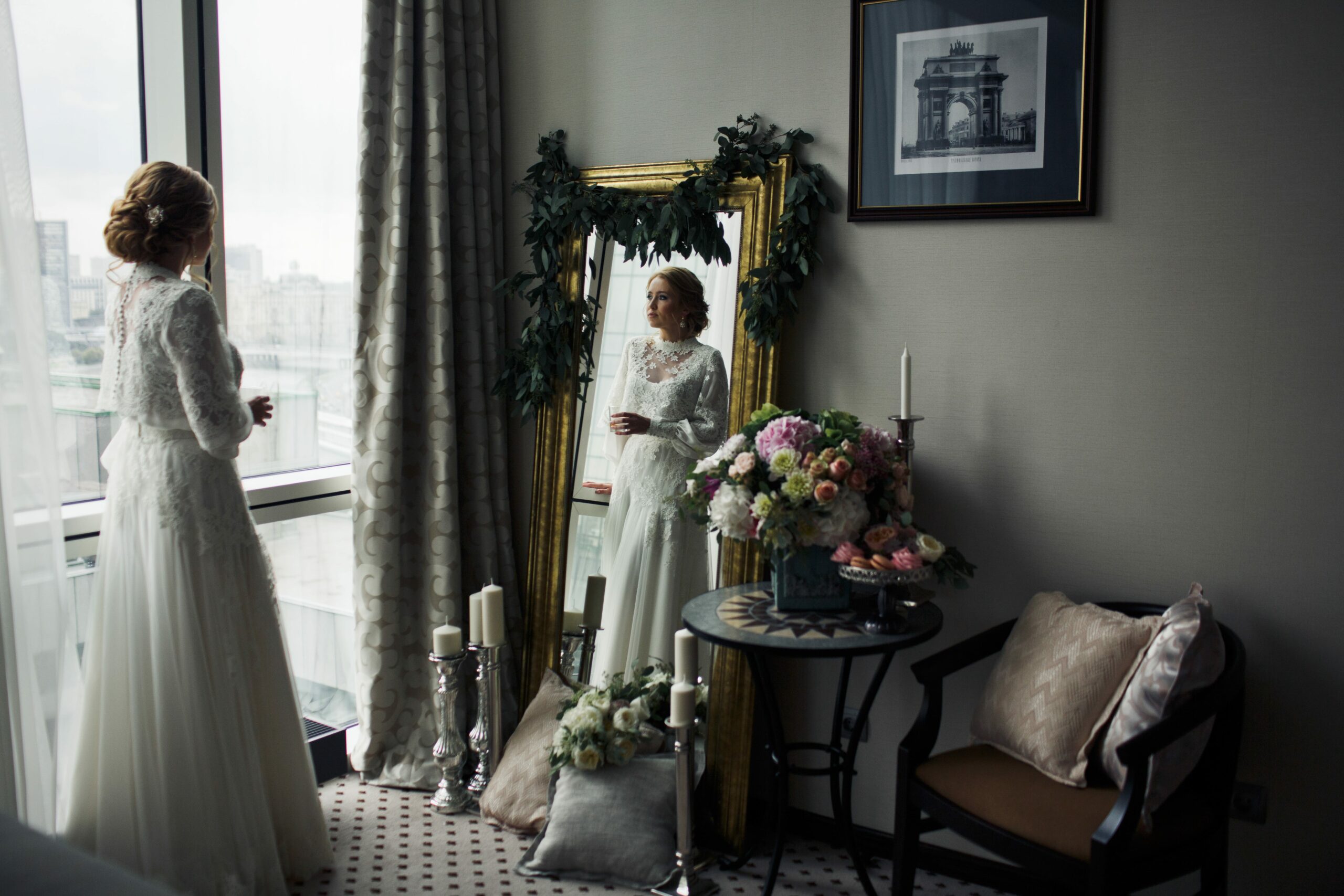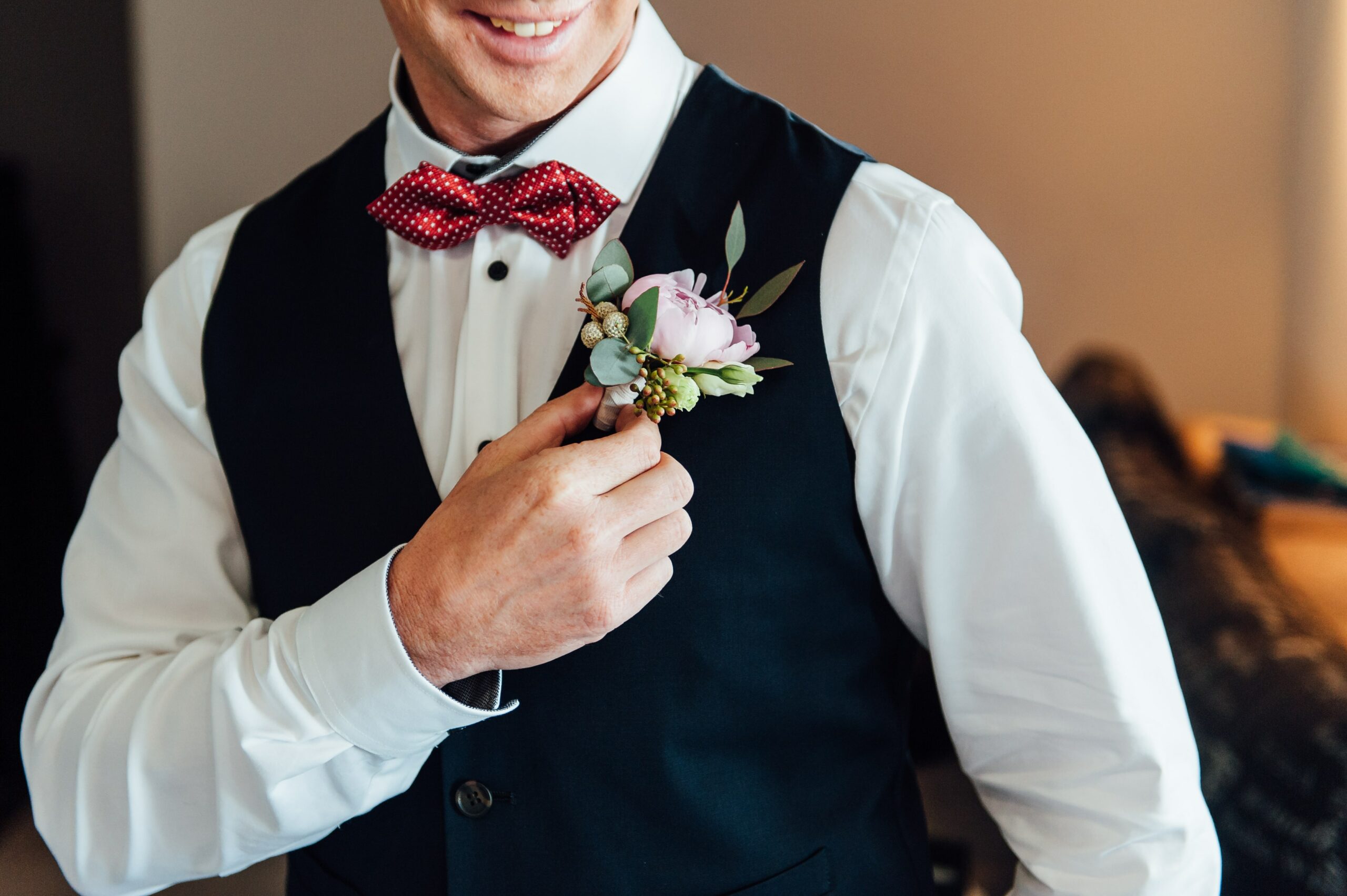Hidden wedding costs can sneak up on even the most diligent of couples. It’s easy to forget to check whether a supplier’s service charge is included, for example… Only to find out a week before your wedding that you need to cough up an extra few hundred pounds! Nightmare.
So what should you look out for? Well, luckily for you, we’ve asked our experts and got the inside scoop. Read on to find out the hidden wedding costs you’d never think the budget for. We promise your wallet will thank you!
Psst! If you want to make even bigger savings, Bridebook is home to the most powerful wedding budget planner available. Simply enter your total wedding funds and in just one click, you’ll have your personalised wedding budget breakdown. Wave goodbye to spreadsheets and penny-pinching!
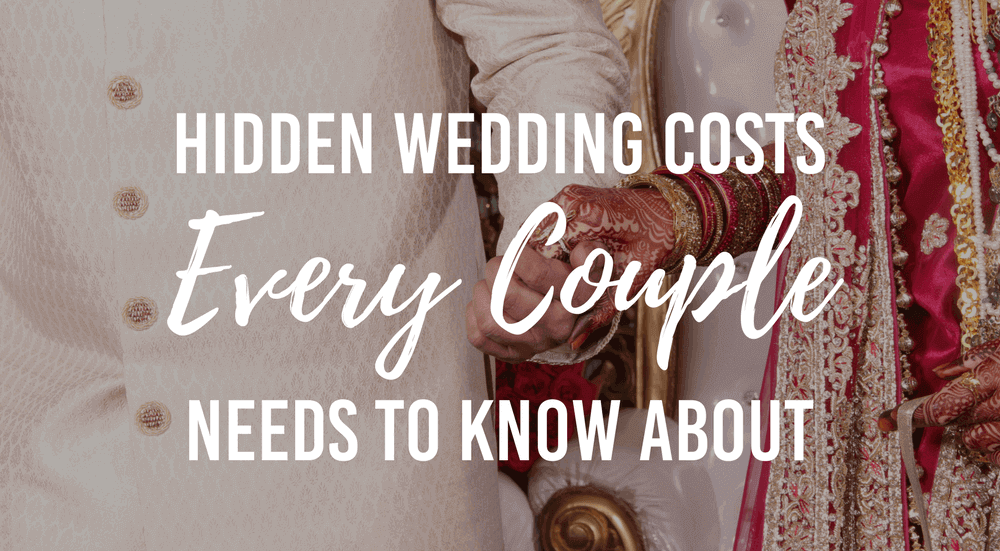
1. If you’re getting married in a church and want an organist, bellringer or choir, check if it’s included. It rarely is, meaning you’ll need to budget extra for the add-on.
2. Watch out for where you’re getting married when estimating costs! An off-site civil ceremony tends to cost more than a ceremony at a registry office.
3. Remember that you’ll rarely pay the base rate for your wedding dress. Wedding dress prices often don’t include the cost of any potential alterations – and you’ll usually need around three fittings to get it just right!
4. Don’t forget any delivery costs that come as extra. Many suppliers, from florists and cakemakers to hair and makeup artists, will charge a premium when delivering from a certain distance.

5. It’s a sneaky one, but check whether or not envelopes are included in the price of your wedding stationery. Can you believe they sometimes aren’t?!
6. Another stationery-related one for you: consider the cost of stamps – especially if you have family abroad! Depending on the weight of your invitations and how far they’ll have to travel, stamps can rack up fast.
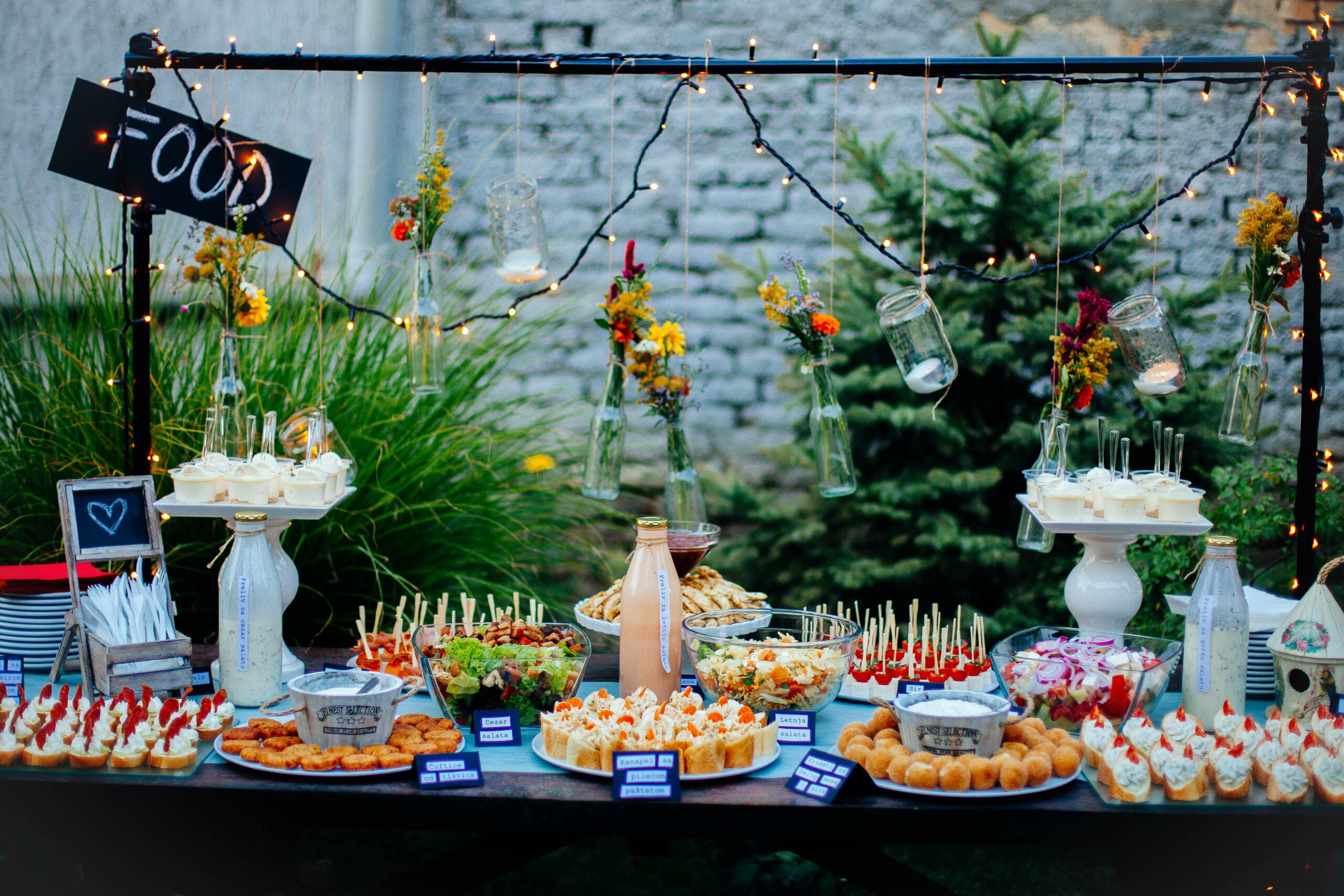
7. Feeling peckish? Plan in advance what you and your wedding party will snack on while you’re getting ready on the big day, even if it’s just some homemade sandwiches. Remember, you’ll probably be nervous. You might also have had a little something to drink… And we all know how easy it is to spend a small fortune on takeout when hunger strikes!
8. While reusing flowers from your ceremony at your reception can be a quick way to save a few bucks, you’ll need to check beforehand if you’re travelling between venues that it’s actually as cost-effective as you think. Your florist may well charge a fee for the extra work they’ll do to relocate displays between different locations.
9. If you’re filming your wedding, some musicians may charge a fee to have their performance filmed. Ask in advance so you’re not surprised on the day!
10. Don’t forget to tip! Make sure your wedding venue (or caterer) includes any compulsory service charges in their bill from the start. It can be an unpleasant (and costly!) surprise to have another 12.5% added to your bill at the last minute.
11. Something many couples forget is that their wedding team (think your photographer, videographer, entertainer, band or DJ, etc.) – may well be expecting to be fed. They won’t necessarily expect the same meal you’re serving your guests – although this can be an easy way to kill two birds with one stone – but do check their contracts, as some will stipulate hot meals be provided. Whether it’s part of their contract or not, we’d always advise that best practice is to make sure your suppliers are provided for.
12. Definitely don’t forget about corkage fees. This is a charge many venues will add onto alcohol bought elsewhere – and it can add up fast. This means that even if you found alcohol for sale at bargain prices, it might no longer be cheaper than buying from the venue once you consider how much the venue will charge you to serve it.
13. If you’re having a marquee at your wedding, make sure to take out insurance to cover any potential damage. It’s not worth the risk of going without!
14. One detail it’s easy to forget – but impossible to avoid – is transport! How are you getting to your ceremony, from there to your reception, and finally back to your accommodation? Whether you need a car, a tractor or a horse, factor the cost of that wedding transport in.
15. We know, we know – we sound like a broken record. But don’t forget about VAT! Check whether or not it’s included and read the small print to avoid any surprises.
16. Your main focus might be on your wedding day but it’s important to budget for any post-wedding spending, as these costs can be significant. For example, you might need to dry clean clothing, buy thank you notes for your guests, and so on.
While we can’t guarantee that covers absolutely everything, those are the top things we’d look out for – and even they could save you hundreds of pounds! One final tip is to make sure you note everything down in one place and make sure the terms of all your arrangements are crystal clear to both parties. That way, you’re on top of everything – and you won’t need to worry about any unexpected surprises!
You Might Also Like…
- 8 Things To Do Now That You’re Engaged
- Top 10 Tips For Choosing Your Dream Wedding Venue
- Wedding Etiquette: Who (Traditionally) Pays For What?
Happy Planning!

